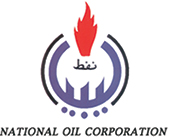By Libya Herald reporter.

London, 14 July 2016:
There seems to be increasing doubt emanating from eastern Libya in the last few days over the National Oil Corporation (NOC) reunification deal.
The official spokesman for the House of Representatives (HoR) has been quoted by Libyan media as saying that HoR president Ageela Saleh, Interim Prime Minister Abdullah Thinni and eastern NOC chairman Nagi Maghrabi met in Guba today to discuss the unification of the NOC.
At the meeting they reassured of the need for the NOC HQ to be located in Benghazi; that the oil revenues are to be for all Libyans; and that it is to be distributed equally amongst all regions.
Meanwhile, the eastern NOC had released an awkwardly worded statement in which it said that it recognises the HoR as the sole legitimate legislature in Libya and it recognizes the PC/GNA, as per the UN-brokered Libyan Political Agreement.
However, confusingly and it seems in contradiction, it goes to say that nevertheless it still recognises the executive authority of the Abdullah Thinni interim government.
It is not clear if this is a reversal of the position of the eastern authority or whether the agreement always depended on the HoR recognizing the GNA prior to NOC unification.
It could also be the case that the eastern authorities have now decided to use the issue of NOC reunification as a means of leverage in view of the desire expressed by western Libya and the international community. With demonstrations, tyre burning and road blocks in Tripoli, the east can see that Tripoli is desperate for increased oil production.
Moreover, the eastern authorities insist on using the term ‘’equal’’ distribution of oil revenues which could be an attempt to enshrine the principle of a third of oil revenues going to the east as opposed to a pro rata formula.
Two thirds of Libya’s population is based in western Libya whilst two thirds of Libya’s oil is based in the east of Libya. However, the historically signed contracts stipulate that oil monies are deposited into the western/Tripoli-controlled bank accounts.
Equally, physically, the two thirds of the eastern-based oilfields are based in the Magharba tribal lands of Ibrahim Jadhran and not anywhere near Benghazi or Beida. It is not clear if it is Jadhran who has actually thrown a spanner in the works and scuppered the reunification agreement by demanding a large (or larger) share of the pie.
It will be recalled that the two contending chairmen of the NOC had reached an agreement on 2 July in Ankara to reunify the oil corporation.
A failure to reunify the NOC would be a big blow to the whole future of Libya. It would undermine the continued unity of the country and the UN-brokered and Faiez Serraj-led Presidency Council and GNA.
Libya is teetering on the brink with power cuts, a cash crisis, high crime and insecurity, a budget deficit and fast depleting foreign currency reserves. A boost in state revenues through increased oil production could facilitate some relief. But it seems increased oil production is intricately linked to the existing complex political conflict and the one cannot be solved without solving the other.






